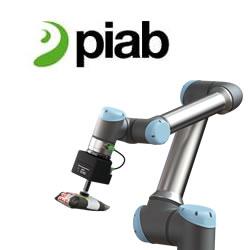TORC leads Team ViGIR in the DARPA Robotics Challenge
Advanced humanoid robotics software for disaster relief
Blacksburg, VA October 22, 2012
TORC Robotics announced that the Defense Advanced Research Projects Agency (DARPA) has selected Team ViGIR - Virginia-Germany Interdisciplinary Robotics Team - for the DARPA Robotics Challenge (DRC) http://www.torcrobotics.com/drc. The technical goal of this revolutionary challenge is to develop ground robots that can support complex tasks in dangerous, degraded, human-engineered environments typical of disaster response scenarios. The program - motivated by the Fukushima disaster - will challenge teams to develop robotic software and hardware capabilities to support first responders. The DRC is a multi-year, multi-phase challenge where research teams from across the world will compete against each other for a $2M prize. Team ViGIR will develop advanced humanoid robotics software and a novel Human-Robot Interface that will enable sliding autonomy for the Boston Dynamics Petman/Atlas humanoid robot.
No stranger to competitive robotics, Team ViGIR consists of researchers from TORC Robotics, Technische Universität (TU) Darmstadt, and Virginia Tech. "We are really looking forward to taking on another DARPA challenge. These challenges have really shaped the field of robotics in last decade. DARPA's challenges create a high stakes environment that is a catalyst for innovation, and I think we have the team for the job," states Michael Fleming, CEO at TORC Robotics.
TORC engineers have been part of both the DARPA Grand Challenges and the Urban Challenge, where TORC led the software development VictorTango's 3rd place finish. A strong competitor in the RoboCup challenges, TU Darmstadt adds significant experience in autonomous humanoid robotics for search and rescue. The team will leverage experience from Virginia Tech's Center for Human-Computer Interaction (CHCI). CHCI is a world leader in design and research of novel HCI concepts and winner of three straight 3D User Interface IEEE competitions.
For more information, or to sponsor our team, contact Andrew Culhane (culhane(at)torcrobotics.com). Several sponsorship opportunities exist that will provide your company or organization with key insight into this exciting research as well as an ability to market yourself on the team's website and on the robot.
About TORC Robotics
TORC enables engineers to rapidly integrate robotic systems through a suite of modular, customizable products. Leading academic, commercial and government organizations use the TORC Robotic Building Blocks™ product line to shorten the development process, lower costs and mitigate risks. These products are used on more than 100 mobile robots ranging from 15 pounds to 15 tons. TORC provides solutions for drive-by-wire conversion, emergency stop, power management, autonomous navigation and operator control. TORC customizes autonomy solutions that map to user-specific missions and needs. For more information, visit http://www.torcrobotics.com.
TORC, TORC Robotics, Robotic Building Blocks, and ByWire are trademarks of TORC Robotics.
About the Simulation, Systems Optimization and Robotics (SIM) Group at TU Darmstadt
TU Darmstadt is one of the leading public engineering research universities in Germany. The Simulation, Systems Optimization and Robotics Group at the Department of Computer Science conducts research in autonomous robot teams, bio-inspired robots and dynamic modeling and optimization methods. The research results have been honored, among others, with the 1st prize of the EURON/EUROP European Robotics Technology Transfer Award, the Louis Vuitton Best Humanoid Award, and several world championship titles for autonomous humanoid and four-legged robot soccer teams in the highly competitive annual RoboCup competitions.
About the Center for Human-Computer Interaction (CHCI)
CHCI is a world-class interdisciplinary research center at Virginia Tech, exploring the design of technological artifacts to support human activity and the impact of interactive technologies on the user experience. Housed in the Department of Computer Science, CHCI has 29 faculty affiliates across the university, including internationally recognized leaders in areas such as virtual and augmented reality, information visualization, gestural interaction, graphics and animation, creativity and the arts, and social collaborative computing. CHCI members lend their skills in user interface design, user experience evaluation, and usability engineering to projects in a broad range of application domains.
Featured Product

The piCOBOT Electric vacuum generator
Fully electric, slim design and absence of air-tubing and cabling. The new piCOBOT® Electric heads towards another success for Piab's piCOBOT® program. A secondary effect of these achievements is the absence of entangling air tubing and cabling. It simplifies the installation, and as the new piCOBOT® Electric only needs a single connection on the cobot arm, the clean set-up allows a completely unrestricted movement. The new piCOBOT® Electric package will contain plug & play software to fit UR e-series cobots, but many other useful adaptations will be introduced in the coming year
